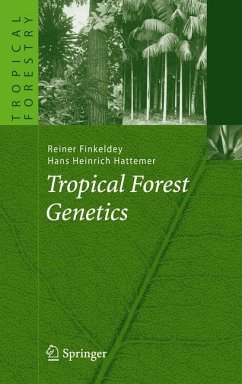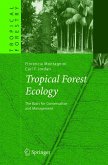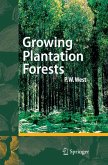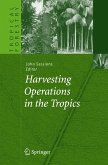Tropical forests harbour much of the planet's genetic resources, and therefore their conservation and sustainable utilization are matters of global concern. Evolutionary processes in both untouched and managed forests are described, as is the role of genetics in plantation forestry and conservation. This book provides a solid scientific basis for researchers, practitioners and students interested in the application of genetic principles to tropical forest ecology and management. It presents a concise overview of genetic variation, evolutionary processes and the human impact on forest genetic resources in the tropics. As well, modern tools to assess genetic diversity patterns and the dynamics of genetic structures are introduced to the non-specialist reader.
Dieser Download kann aus rechtlichen Gründen nur mit Rechnungsadresse in A, B, BG, CY, CZ, D, DK, EW, E, FIN, F, GR, HR, H, IRL, I, LT, L, LR, M, NL, PL, P, R, S, SLO, SK ausgeliefert werden.









